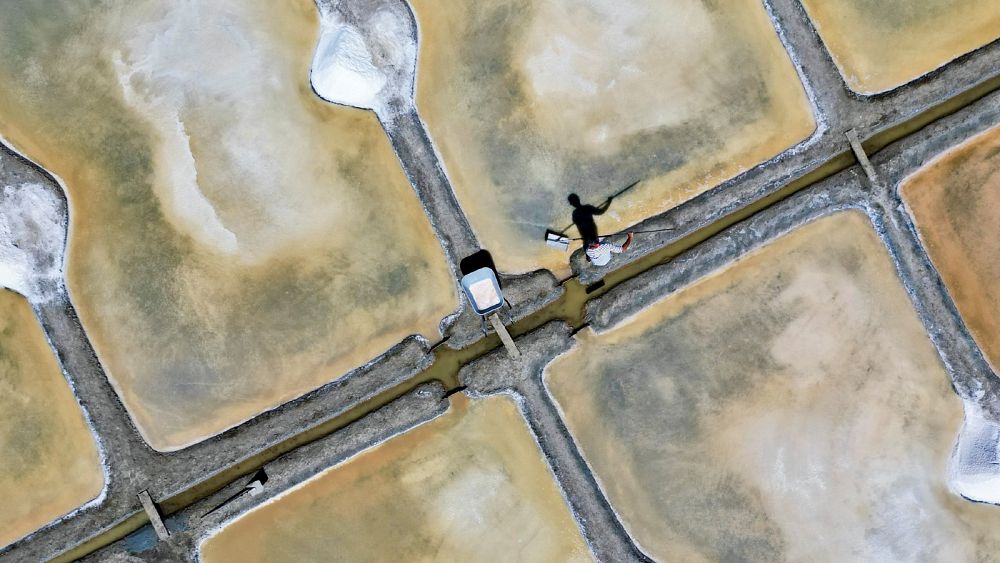Salt farmers emerge as reluctant winners of Europe’s severe drought

As Europe suffers its most severe drought in decades, one group has emerged as a reluctant winner of the extreme conditions.
Salt farmers in France say they are expecting record levels of production thanks to land drying up after a series of blistering heatwaves.
The group’s success contrasts sharply with the problems water shortages are causing other parts of society, including leaving homes without running drinking water.
Francois Durand, a salt farmer in the Guerande region, north-west France, acknowledged his sector is one of the few short-term winners of climate change.
“You could say that, yes. Unfortunately. It’s clear it’s good for us. We’re heading towards record production,” said Durand, who has worked on the salt marshes for over 20 years.
He added that sea salt production had averaged around 1.3 tonnes per salt pan in the last decade – but the yield this year was nearly double that at 2.5 tonnes.
Soaring temperatures and a lack of rainfall have hastened salt water evaporation.
Salt farming sees workers wheel barrows along narrow mud walls that separate each “pan” – flat expanses of land – before scraping sea salt from the bottom of flats by hand.
Many in the industry told Reuters they had enough salt reserves to cover the next couple of years.
Meanwhile, risotto rice producers in northern Italy said their fields are at risk of turning too salty due to bone dry weather conditions.
The farmers in Po River Valley said increased salt content could damage risotto rice harvests for years to come.
As much as 45 per cent of EU land is in danger of drought, according to data published this week by the European Drought Observatory.
A further 15% of territory is facing the highest “alert” level, meaning plants and crops are being impaired.
The dry conditions have left over 100 districts in France without running drinking water. In Spain, which experienced its hottest July on record, water reserves are at an all-time low.
